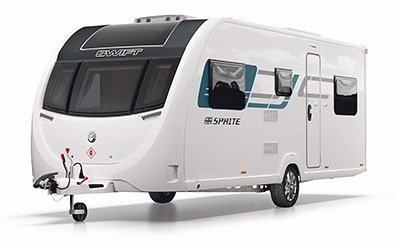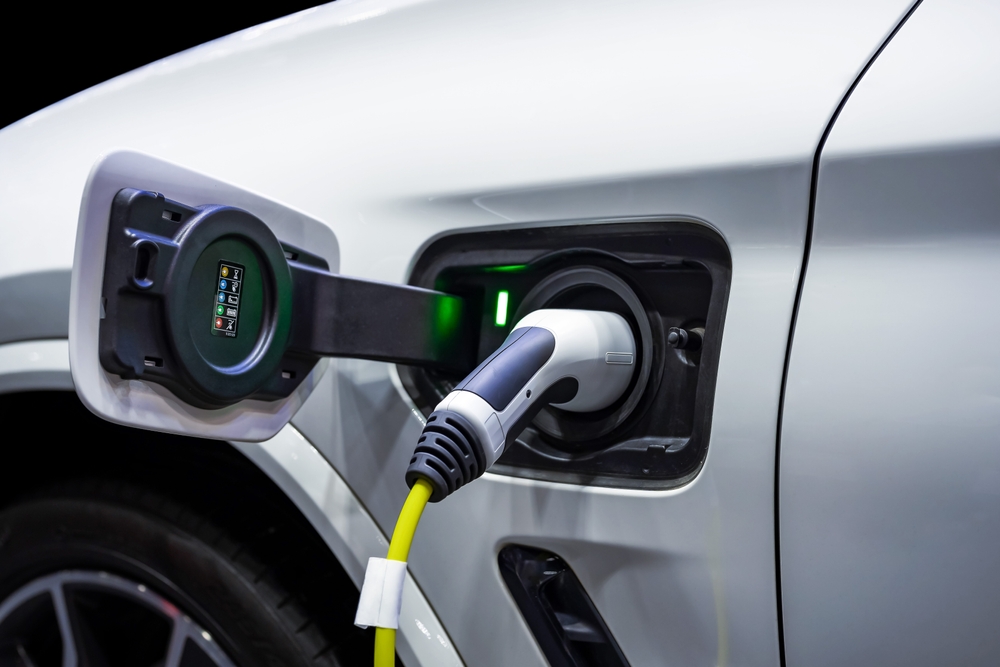Maintenance motivation: Keeping your caravan in tip-top shape
As electric vehicles, or EVs, become more and more common on our roads, many caravan owners are likely wondering whether it’s possible - and indeed practical - to tow with one. The good news is that the technology has come a long way, and towing a caravan with an EV is no longer a futuristic fantasy. However, there are important considerations around the car’s range, charging needs, weight limits and the driving experience that every caravan owner should know before hitching up. Let’s take a look at these below…
Can you tow a caravan with an electric vehicle?
Absolutely - many electric vehicles are capable of towing. However, not all of them are actually rated to do so. You must make sure your car is type approved to tow - as if it’s not, it’s likely to invalidate both your warranty and your insurance.
Some smaller EVs have no towing capacity at all, while others can manage weights of up to 2,500kg or more. Always check your vehicle manufacturer’s specifications for its braked towing capacity, as this determines what you can legally and safely tow. As with petrol or diesel cars, there’s often quite a difference between makes and models - the Kia EV9 and the BMW iX, for example, can tow up to 2,500kg, whereas the Hyundai Ioniq 5 can tow up to 1,600kg.
It can take some getting used to, towing with an EV, so do practice with a few short trips first before going anywhere long distance!
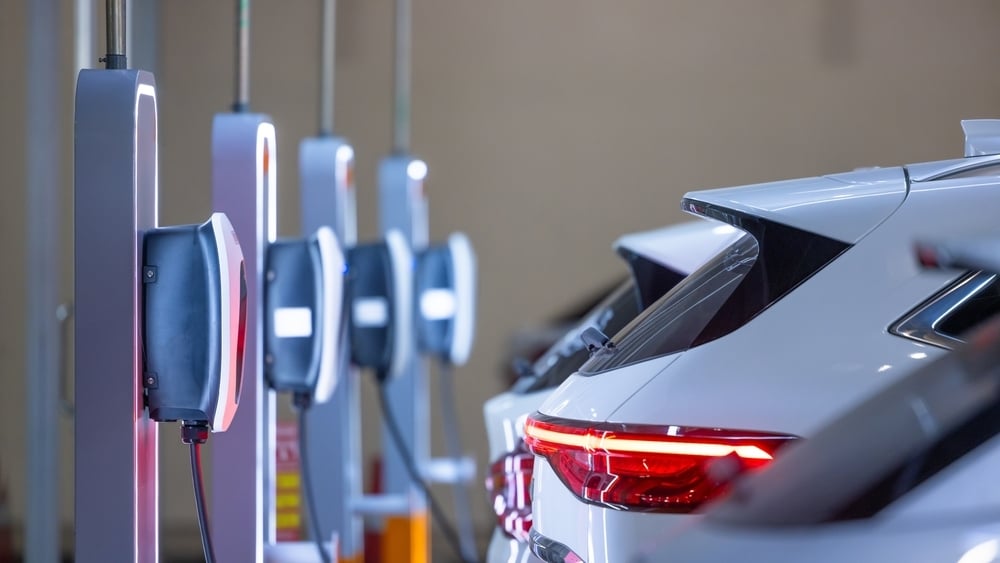
How towing affects range
Towing a caravan significantly affects an EV’s range - often reducing it by 30% to 50%. This is due to the extra weight, drag and the energy demand on the motor. For example, a car with a range of 250 miles might only achieve 125-175 miles while towing.
To minimise range loss, reduce your speed, as aerodynamic drag increases exponentially at higher speeds. Use the eco mode, as this optimises power delivery and regenerative braking. Also, plan your route effectively in advance - try to avoid lots of steep gradients where possible, as hill climbs drain the battery faster.
Charging while on the road
The charging infrastructure is probably one of the biggest challenges when towing an EV. Many public chargers are in car parks, or have bays that aren’t suitable for vehicles with a caravan attached, and in many cases, you might find you’ll need to unhitch the caravan to charge. When your vehicle is charging, you’ll need to find somewhere to park the caravan. Remember to lock it up, and take action to prevent it being stolen by using a good hitch lock, at the very least.
To make life easier, look for pull-through charging bays (these are becoming more common on motorways and at service stations). You can use apps such as Zapmap or A Better Route Planner to find charger-friendly stops, too.
If you plan shorter legs between charges, such as every 100–150 miles when towing, and have a plan of where you are likely to be able to charge, you won’t go far wrong - it’s obviously good to be taking driving breaks, anyway, regardless of low charge!
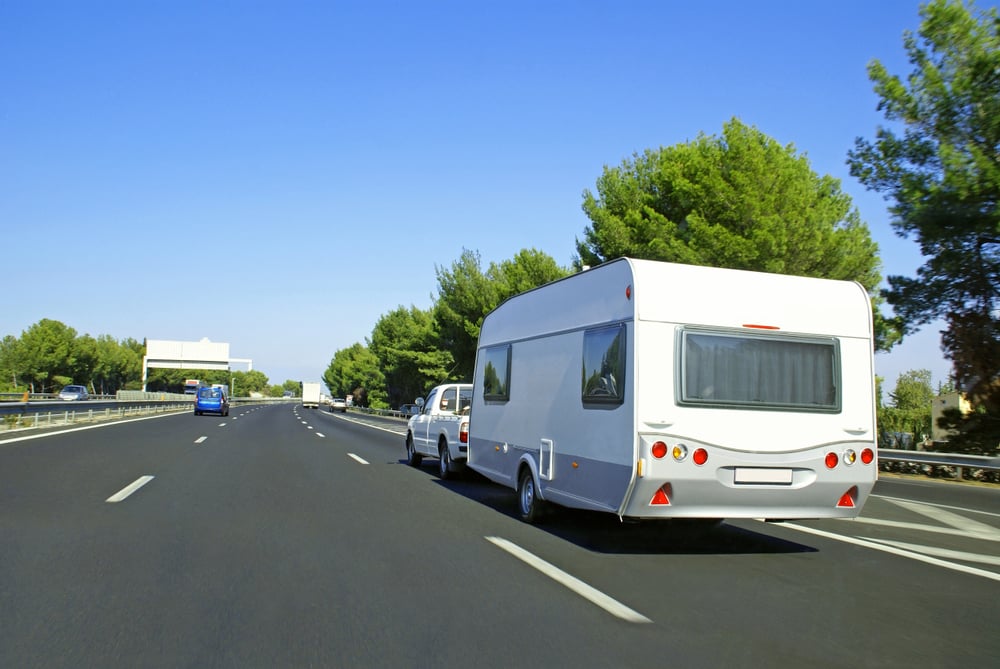
Weight, stability and nose weight
As with any tow car, you need to consider the kerbweight, maximum towing weight and the nose weight limit. EVs are generally heavier due to their batteries, which can actually improve stability when towing. The key is to maintain a balanced outfit, so ensure your caravan’s nose weight (the downward force on the tow ball) is within the EV manufacturer’s specified limit.
Regenerative braking and performance
One of the most impressive benefits of towing with an EV is the regenerative braking system. When you slow down, the electric motor recaptures energy and sends it back to the battery, effectively recharging it slightly. While this won’t add huge amounts of range, it makes for smoother braking and reduces wear on your caravan’s brakes.
Electric cars also tend to have instant torque, meaning they can pull away smoothly and confidently, which is especially handy on hills or when joining a motorway.
Towing with an EV produces zero tailpipe emissions, making it a greener option for those who want to minimise their environmental footprint.
Insurance and the law
When towing with an EV, the same legal requirements apply as with any other tow car.You must have the correct driving licence category for your combined weight. Your tow ball and electrics must be properly fitted and tested, and the caravan’s lights and indicators must function correctly. Also, your insurance must cover towing - do check this with your provider, as EVs may fall under specific categories.
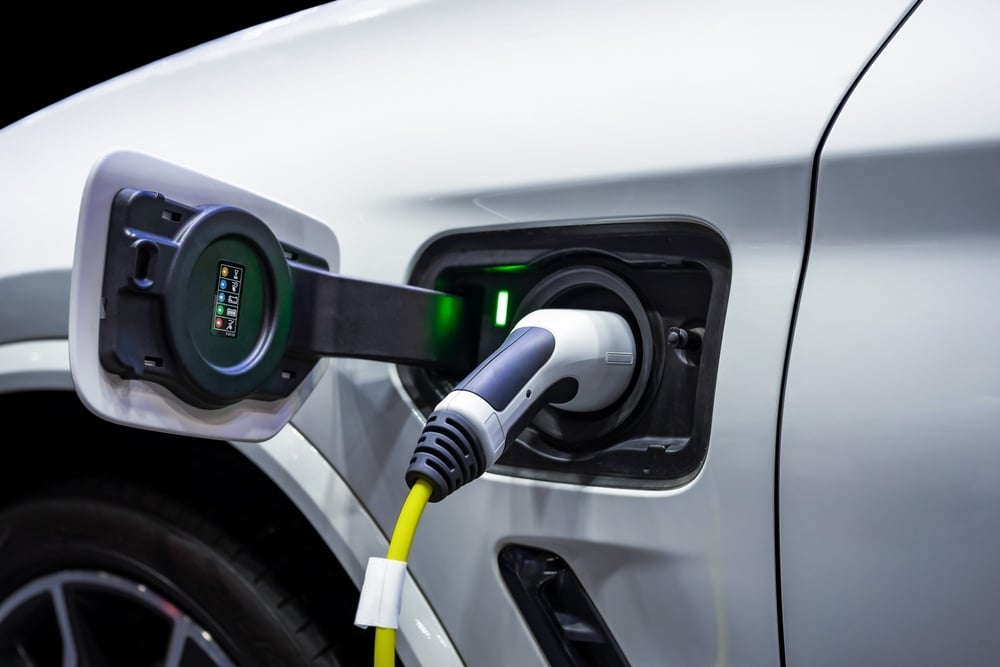
So, is it practicable?
For many people, yes - towing with an electric vehicle can be both practical and enjoyable, particularly for shorter trips or stays at sites with good charging facilities. The smooth, quiet drive and strong torque will no doubt make for a relaxing journey.
However, if you’re planning long-distance touring or remote adventures, factors such as range anxiety and charging access could still pose challenges. As the UK’s charging network expands and more high-tow-capacity EVs arrive on the market, these obstacles will surely continue to shrink.
Remember, not every electric vehicle is designed or approved to tow a caravan, so the first step is to check your manufacturer’s guidance. Make sure you know whether your EV can legally tow and what its maximum towing capacity is. As long as the caravan you’re pulling stays within that weight limit, you should be fine.
If your EV isn’t rated for towing and you go ahead anyway, you risk damaging the vehicle and putting yourself at risk. The added load can put extra pressure on the brakes and suspension, causing premature wear or potential failure. Towing with a vehicle that isn’t certified to do so can also harm the battery system. This is because of the regenerative braking - when extra weight is involved, the increased energy generated during braking can overload the system and potentially cause battery damage.


